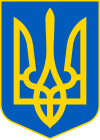
Back Joelia Timosjenko Afrikaans يوليا تيموشينكو Arabic يوليا تيموشينكو ARZ Yuliya Timoşenko Azerbaijani Юлія Уладзіміраўна Цімашэнка Byelorussian Юлія Цімашэнка BE-X-OLD Юлия Тимошенко Bulgarian ইউলিয়া টিমোশেঙ্কো Bengali/Bangla Yuliya Tymochenko Breton Julija Timošenko BS
Yulia Tymoshenko | |
|---|---|
Юлія Тимошенко | |
 Tymoshenko in 2018 | |
| Prime Minister of Ukraine | |
| In office 18 December 2007 – 4 March 2010 | |
| President | Viktor Yushchenko |
| Deputy | Oleksandr Turchynov |
| Preceded by | Viktor Yanukovych |
| Succeeded by | Oleksandr Turchynov (acting) |
| In office 24 January 2005 – 8 September 2005 Acting: 24 January 2005 – 4 February 2005 | |
| President | Viktor Yushchenko |
| Deputy | Anatoliy Kinakh |
| Preceded by | Mykola Azarov |
| Succeeded by | Yuriy Yekhanurov |
| Deputy Prime Minister for Energy and Coal Mining | |
| In office 30 December 1999 – 19 January 2001 | |
| President | Leonid Kuchma |
| Prime Minister | Viktor Yushchenko |
| People's Deputy of Ukraine | |
| Assumed office 27 November 2014 | |
In office
| |
| Personal details | |
| Born | Yulia Volodymyrivna Hrihyan 27 November 1960 Dnipropetrovsk, Ukrainian SSR, Soviet Union (now Dnipro, Ukraine) |
| Political party | Batkivshchyna (since 1999) |
| Other political affiliations | Hromada (1997–1999) Yulia Tymoshenko Bloc (2001–2012) Dictatorship Resistance Committee (2011–2014) |
| Spouse | |
| Children | Eugenia Tymoshenko |
| Alma mater | |
| Website | |
Yulia Tymoshenko | |
|---|---|
| Deputy | People's Deputy of Ukraine |
 |
|---|
|
|
Yulia Volodymyrivna Tymoshenko (Ukrainian: Юлія Володимирівна Тимошенко, IPA: [ˈjul⁽ʲ⁾ijɐ woloˈdɪmɪr⁽ʲ⁾iu̯nɐ tɪmoˈʃɛnko]; née Hrihyan (Грігян);[1] born 27 November 1960) is a Ukrainian politician, who served as Prime Minister of Ukraine in 2005, and again from 2007 until 2010; the first and only woman in Ukraine to hold that position.[2] She has been a member of the Verkhovna Rada as People's Deputy of Ukraine several times between 1997[3] and 2007, and presently as of 2014, and was First Deputy Prime Minister of Ukraine for the fuel and energy complex from 1999 to 2001. She has the degree of Candidate of Economic Sciences.[4]
Tymoshenko is the leader of the Batkivshchyna (Ukrainian: Батьківщина) political party. She supports Ukraine's integration into the European Union and strongly opposes the membership of Ukraine in the Russia-led Eurasian Customs Union. She supports NATO membership for Ukraine.[5]
She co-led the Orange Revolution and was the first woman twice appointed and endorsed by parliamentary majority to become prime minister, serving from 24 January to 8 September 2005, and again from 18 December 2007 to 4 March 2010. She placed third in Forbes magazine's list of the world's most powerful women in 2005.[6]
Tymoshenko finished second in the 2010 Ukrainian presidential election runoff, losing by 3.5 percentage points to the winner, Viktor Yanukovych. From 2011 to 2014 she was detained due to a criminal case that was seen by many as politically motivated persecution by President Viktor Yanukovych, but after the Revolution of Dignity she was rehabilitated by the Supreme Court of Ukraine and the European Court of Human Rights.[7][8] In the concluding days of the Revolution of Dignity, she was released after three years in jail. She again finished second in the 2014 Ukrainian presidential election, this time to Petro Poroshenko. After being a heavy favorite in the polls for several years,[9] she came third in the first round of the 2019 Ukrainian presidential election, receiving 13.40% of the vote, thus failing to qualify for the second round.[10]
Elected to the Verkhovna Rada (Ukraine's parliament) in 2019, she led her party in opposition.[11]
- ^ An orange revolution: a personal journey through Ukrainian history by Askold Krushelnycky, Harvill Secker, 2006, ISBN 978-0-436-20623-8, p. 169.
- ^ Як змінювався гендерний склад Кабміну за час незалежності України [How the gender composition of the Cabinet changed during Ukraine's independence]. Слово і Діло (in Ukrainian). 6 March 2020. Archived from the original on 18 April 2021.
- ^ (in Ukrainian) Тимошенко Юлія Володимирівна Archived 27 January 2021 at the Wayback Machine, Rada.gov.ua (29 August 2019)
- ^ Тимошенко Ю. В. «Государственное регулирование налоговой системы: Диссертация на соискание учёной степени кандидата экономических наук». 1999. Национальная библиотека Украины им. В. И. Вернадского
- ^ "NATO's Ukraine challenge Ukrainians want membership, but obstacles abound". www.brookings.edu. 6 June 2019.
- ^ "100 most powerful women in the world". Forbes. Archived from the original on 11 January 2006.
- ^ Cite error: The named reference
Vestniwas invoked but never defined (see the help page). - ^ Cite error: The named reference
ECHRwas invoked but never defined (see the help page). - ^ "The woman in a white dress, Master's thesis". 2018.
- ^ "Ukraine election: Comedian leads presidential contest". BBC. 1 April 2019.
- ^ "Фракция Тимошенко перешла в оппозицию". pravda.com.ua. 13 November 2019.